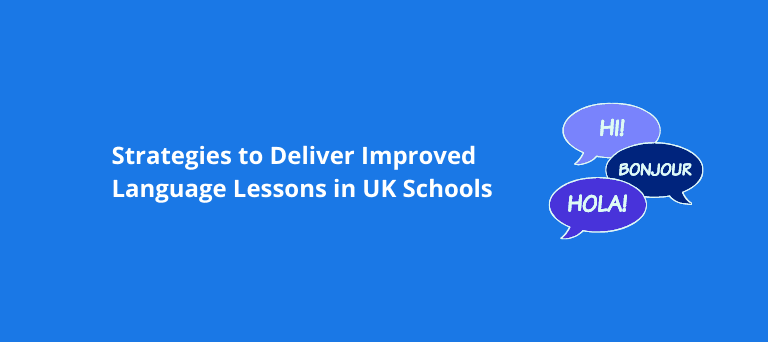Samia · Teacher
11 Aug 2019
3
min read

Sacrebleu! Why do I need to learn French or Spanish?
So many pupils today simply do not seem to value language subjects in the same way that they value the core subjects such as Maths or English. As one of the biggest obstacles when it comes to teaching languages in UK schools, it is necessary for teachers to overcome this and find new and exciting ways to boost their students’ engagement with languages. In this article I will offer some tips on how to drive better engagement when teaching foreign languages to primary or secondary schools, in either your own classroom or your next supply role.
First of all, I recommend the following preparation for any class you teach:
Know your students.
Before teaching any class, I always make sure I know my students’ needs so that I can plan according to their ability. Firstly, I look at all the data available from the school to get to know the SEN, EAL, and low or high ability pupils in my class. This gives me the chance to familiarise myself with any recommended strategies for the SEN pupils to follow.
By studying all this information about the students, I can differentiate the learning and tasks according to their needs, and produce an efficient seating plan to minimise class disruption.
This preparation results in more inclusive access to learning, and the pupils will be less likely to misbehave or disrupt the lesson.
Always have high expectations for your students.
I always expect the students to come ready to my lesson and work to the best of their ability throughout.
Before I start a lesson, I check that all uniform is worn correctly, that each student has brought their equipment every time and that they line up and enter the class quietly. I find that enforcing these standards makes lessons run more smoothly, as the students are more focused and ready to respond to activities.
Plan engaging activities.
There are many educational games and activities that really draw pupils’ attention, encourage collaborative work and make the learning process more fun. It is really the best way to teach languages.
As I have mentioned, try to get to know your students. I always start the year by giving them a little questionnaire that they need to fill in on the first lesson. In this questionnaire I ask a few questions, such as what they do during their free time and who is their hero.
I use this information to plan according to their interests. For example, I taught a class which was mainly composed of challenging boys who loved the English Premier League. I created activities where pupils were in teams completing tasks for points. I named the teams after popular football teams and unsurprisingly the students were far more motivated to win each task!
In languages, it is really important to include some fun activities in your planning so as to engage your pupils.
Great examples of these are:
“Cut and stick activity”, where students work in pairs and are given cutouts of images. They must then match these to sentences on their worksheet.
Learning songs in the target language, which relate to the studied topic. Pupils can listen to the songs and fill in the gaps in the lyrics.
Miming activity, when you guess the action in the target language.
The “hunt game”, where some posters containing target language sentences are placed on the wall. Students are then given the English translations for posters, and have to move around finding and filling in the target language sentences in their sheet.
Reward your students.
Giving rewards is hugely important when it comes to teaching both primary and secondary pupils, since it values the work they do and boosts their self-confidence. I always try to encourage pupils with some positive rewards. Ideas include:
Stickers
Positive phone calls home
House points
Positive verbal feedback
Freedom to work on the computers in the next lesson.
I prioritise rewards over sanctions in my lessons, since it is undeniable that this produces better results! Students are often very proud to take home a reward and show it to their parents or carers.
When students begin to enjoy learning languages, they also learn about other people’s cultures and it can teach them a great deal about diversity and acceptance. These benefits are hugely important, and so I would encourage every teacher to continue to push for improved engagement with languages in schools.




